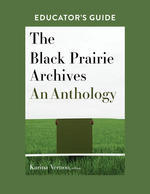The white-washing of Canadian history is a phenomenon that can be readily seen once one opens a Canadian history textbook. The Black Prairie Archives: An Anthology runs counter to this tale of history as it, “unearths and brings critical attention to the little-known history and cultural production of late-nineteenth and early-twentieth-century Black writers on the Canadian prairies and connects this archival literature to the work of contemporary Black prairie authors.” This anthology gives us a new lens by which to imagine this place we have come to know as Canada. More specifically, this archive allows for Ontario students to reconsider the conceptions they may have developed or assumed about those who live in the Prairies. This document gives students and teachers the ability to think differently about different regions in Canada and also allows them to look at the many similarities that those of the African diaspora face whether you are in the Prairies, Ontario, Quebec, or British Columbia. Most importantly, this archive uses primary sources to tell the untold stories of those that have made important contributions to Canadian history.
Download the Educator's Guide PDF here
The Curriculum Document
This curriculum document has been created to support the text The Black Prairie Archives: An Anthology. This document is intended for, but not limited to, use in Grade 10, Canadian History, Since World War 1. This course, as stated in the Ontario curriculum, explores social, economic, and political developments and events and their impact on the lives of different individuals, groups, and communities, including First Nations, Métis, and Inuit individuals and communities, in Canada since 1914. Students will examine the role of conflict and cooperation in Canadian society, Canada’s evolving role within the global community, and the impact of various individuals, organizations, and events on identities, citizenship, and heritage in Canada. Students will develop an understanding of some of the political developments and government policies that have had a lasting impact on First Nations, Métis, and Inuit individuals and communities. They will develop their ability to apply the concepts of historical thinking and the historical inquiry process, including the interpretation and analysis of evidence, when investigating key issues and events in Canadian history since 1914. Ontario Curriculum: Canadian and World Studies, 2018
Terminology
People of African ancestry living in Canada are often referred to as African, African-Canadian, Afro-Caribbean, Black, and Peoples from the African Diaspora. In The Black Prairie Archives: An Anthology, editor Karina Vernon uses the term “Black” as “it suggests that the nation does not function as the dominant point of reference in determining Black identities, organizing group affiliations, or in preserving Black archives (p. 11). For consistency of terminology, this resource will use the term Black to refer to the people named in the archive as well as all those who identify as Black. This resource also capitalises the letter Educator’s Guide: The Black Prairie Archives 4 B in the word black when referring to Black people and culture as a form of respect to Black people and to follow the guidelines in The Canadian Press Stylebook.
Learning Norms
Unlearning history can bring up many different emotions and opinions and we strongly suggest setting norms within the classroom that speak to respect, kindness, understanding and empathy. Included are some guidelines around creating these norms in learning environments through the use of circles, which can help support caring and supportive learning environments that demonstrate love, “...when we teach with love we are better able to respond to the unique concerns of individual students, while simultaneously integrating those concerns into the classroom community. When teachers work to affirm the emotional well-being of students, we are doing the work of love (bell hooks, Teaching Critical Thinking: Practice Wisdom, p. 160). In addition, journaling can also be considered as a way to build community, learn, collaborate, and self-reflect.


